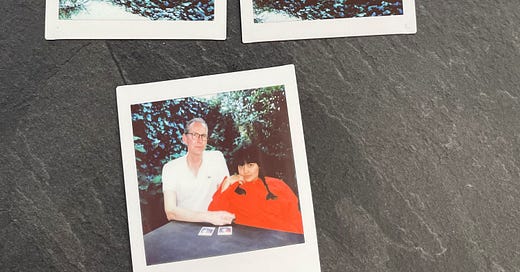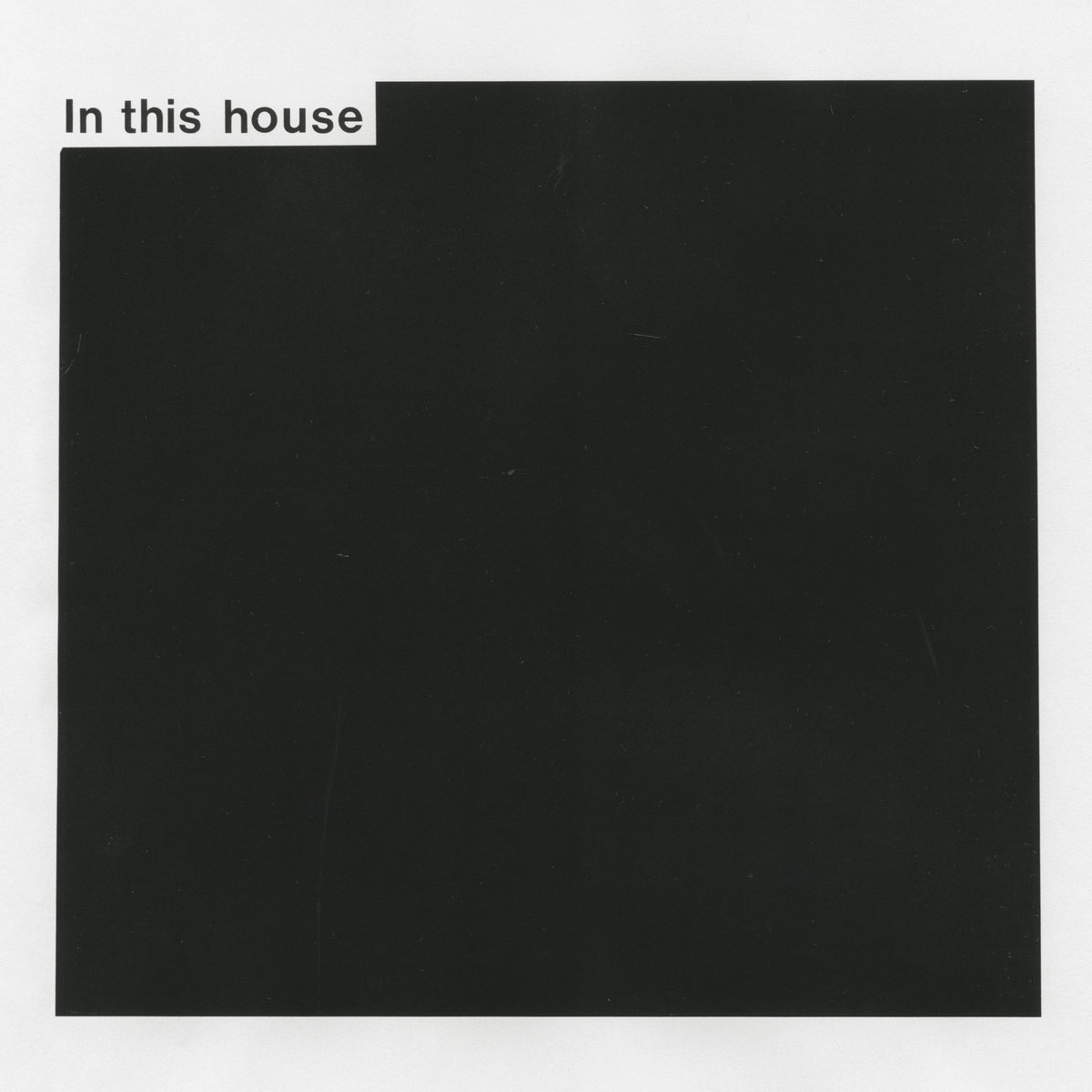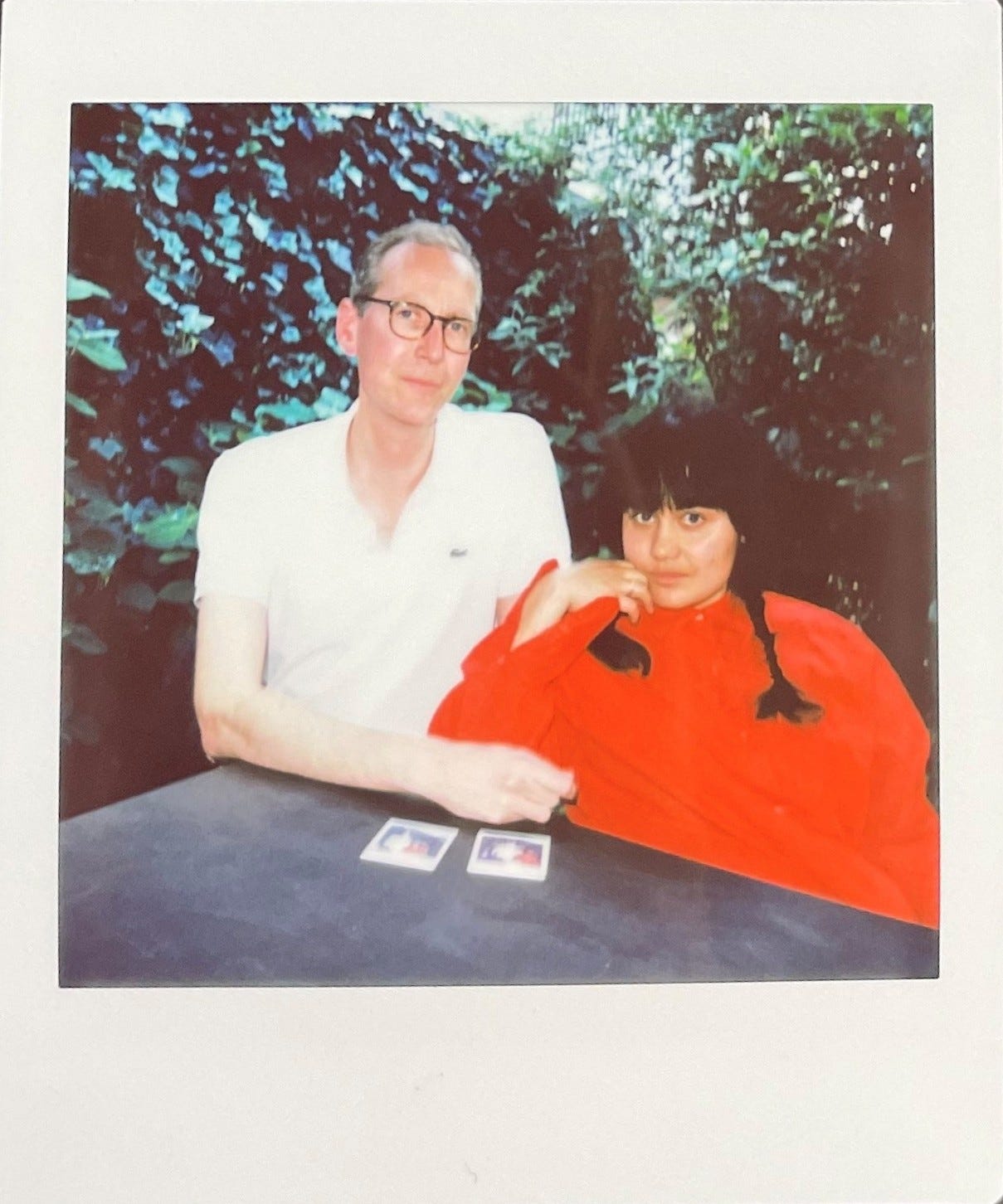In This House… everybody’s invited
An interview with Arie van Vliet & Shalita Dietrich of Lewsberg on recording an album that is all about wrong notes, embracing influences and a polyphonous entendre against hyper-gentrification.
If you were to attend the funeral of Lewsberg, the best burial gift to bring would be silence – or the keys to the van they used to tour with. Such is the exquisite response we get to a morbid question, as we meet the two musicians shortly after the Easter Weekend in a bar, close to Rotterdam Centraal Station. Lewsberg remains, even post existence, mutedly dramatic and playfully mundane.
Just going from the first looks of Rotterdam, it would be all too easy to draw similarities between the cityscape and the songscapes: There’s a post-modernity to the architecture, a greyness to the trees embedded between the two main roads leading from the railway station, and so much concrete. Much of it would’ve been newly built post war, and much of it had been embraced by artists, musicians, cultural workers. In recent years though, Rotterdam is slowly being suffocated by gentrification. Even before our meeting, Arie wrote several times how he’s trying to think of a space to meet close to the station. And all that, only to talk about an album that was released five years ago.
When In This House was released, Lewsberg had already put out a striking self titled debut album (2018) and accumulated several positive reviews for the new one (Loud and Quiet, Louder Than War). Around 50 gigs were lined up for a new tour, about to start. But as the album was released, on March 27th 2020, the covid pandemic hit like a long lasting dead air lullaby. While Shalita took a breather, Arie was struck by an immense gloom, grew a beard and didn’t touch his guitar for half a year. One year later, Lewsberg released another album that, musically speaking, was painted with much more of a silence in mind. Something must’ve died, or more accurately, changed pace.
“I can never really express what I’m thinking. Like right now, in this interview—I’m saying something, but it’s not exactly what I’m thinking.” Arie van Vliet
We are all dying just a little bit, everyday. So goes life. But what if we’re also rebirthed, every day, just a tad? Grabbing an LP from a stack and putting it on a record player illustrates this point quite well. With every listen the needle scratches, and with every reverberation one is thrown back into the time of recording. In this sense, Lewsberg are forever dying, in many different shades. And so is Rotterdam.
Arie:
A recent example is the Hofplein.
It’s a big roundabout with a fountain in the middle—surrounded by lots of cars, concrete, asphalt, that kind of thing.
Now they’re going to turn it into a park. And that park is going to be… just really—
Shalita:
They say they want fewer cars and all that, but…
Arie:
Average. And boring.
Shalita:
There’s always something else behind it. That’s how it is in Rotterdam—and everywhere, really.
But if you think of Rotterdam 15 years ago—or just my street—it’s changed so much. Rotterdam used to be a poor city. It was always poor. Kind of ghetto, really.
Arie:
Yeah, even 15 years ago…
Shalita:
Exactly. I mean, during my adult life, it already changed a lot. And now it’s starting to look just like Amsterdam. That’s not a good thing […] Everything is so ****ing expensive. We can’t even live here. I can’t move. You can’t move. No one can move. Everyone I know can’t afford to move—because rent is too high.
The record starts off with all the wrong chords. Well, technically it’s only one chord played on an out of tune guitar, presumably Arie’s red Airline guitar (this could be false though). The noise is intense and straining. The 2nd guitar plays singular notes that channel The Velvet Underground at their defiant best and the vocals are dry. In what has been described as a thick Rotterdam accent, Arie is narrating a really mundane story: “He was not a man of many words / But one day he felt the need to write them down / To write things down as concise as possible […]” culminating in a non-sensational conclusion “He paid for his tools / Paid and left and walked back home”.
Musically it is very repetitive. And when asked why it never got boring to play the same notes over and over, Shalita answers with a laugh. She doesn’t know. She claims, in the beginning, they couldn’t really play their instruments, but got better as they went on, always taking rehearsals seriously. And even here, at its most frantic, the grinding music of Lewsberg is always well structured, motoric, almost predictable, but never boring. It probably wouldn’t work so well, if the lyrics had grander ambitions. But Arie van Vliet is a good-hearted misanthropist who isn’t interested in big moments. He says, he likes boring things, everyday stuff. When a person never drinks an alcoholic beverage at lunchtime, but then one day, they do. These stories are in fact, wildly dramatic, but on a microscopic scale. The clear and poignant composition of words work in favor of the song structures. It is making the everyday mundane, horribly suspenseful. Abrupt. (And sometimes funny, too.)
Uncannily, as he talks about his memories and shares sentiments, the speech of Arie van Vliet sounds like straight out of a Lewsberg song. Maybe this isn’t so surprising and maybe it is this very authenticity, which gives the music of Lewsberg an elevated status, above all those comparisons to that Warhol-produced band of the 1960s. Before this interview, I was very curious as to how much The Velvet Underground played a role in the formation of this band. But it soon becomes irrelevant. It’s just another influence, just like the early Hip Hop stuff he used to listen to as a teen, The Fugees (Arie) or the Offspring (Shalita) and PJ Harvey (Shalita). The answer is always the same: “it just kind of happened”.
Arie
I started listening to The Velvet Underground about 15 years ago. I’ve listened ever since. I’m still not tired of them. I like how simple and direct it is. That’s everything I want to hear in music, actually.
It is always thanks to outside influences, that we can sculpt a thought, acquire culture, or in this case, build houses. This particular house was built during a very hot summer in Den Haag in 2019. They both remember the owner’s dog taking a dump inside the Sahara Sound Studio and Shalita remarks on the soothing presence the dog had on her. She also mentions how her then boyfriend was put into jail – a mere sidenote that isn’t explained further.
This may be another clue to the mystery of Lewsbergs brilliance. The clear and concise (and yet so abstract!) lyrics and the motoric drive of the rhythm section, it all creates suspense of a story that could be told but is never completely spelt out. Because you see, tropes are boring and mundanity holds its own potential. This is also mirrored in the album cover: A big black square, almost like Russian painter Kazimir Malevichs end-of-art-like avant-gardism. Arie once remarked in another interview that to him, it is not minimal, but a whole world lies beyond it. In reality, it is a manipulated photograph. But instead of showing, it alludes:
Arie
It started as a photograph. Then we stripped it down and manipulated it so much that it became more of a suggestion than an image. We wanted it to feel like the music: unclear, hard to place, a bit haunted.
Shalita
We removed almost everything. It got better the less we put in.
Arie:
Yeah. It mirrors the songs in that way. They're not trying to explain themselves.
To me, the cover of In This House shows a piece of Rotterdam. Maybe it is part of another concrete building, or another building block of the creative stages that reign throughout this city. But as (“hyper”)gentrification takes hold the motive rings only more significant. The album and everything that it connects to is a piece of our modern history, and possibly could be looked as a memorial warning to future generations – don’t build walls around your community or you’ll end up like Antigone, doomed to live inside a house without outside influences while your own government marinates in post-war treasuries. Once art is dead, further death ensues.
The still existing stages of the Netherlands are not free of death. There is still a lack of female musicians and there is still a lack of BIPOC representation around the R&R circuit. Just ask Shalita, who plays in one of the rare all-female* bands in the country Venus Tropicaux (another good one is The Klittens). Why this is, there are a myriad of complex possibilities, some of them being patriarchy, misogyny, racism and probably a general lack of funding. This lack of people (?) and visibility (!) is structural: Check out this 2024 study from the Vrije University of Amsterdam Women underrepresented on radio: only a quarter of songs are from women, this rundown by Humanity in Action titled Intersectional Activism in the Netherlands (or the Lack Thereof?), or this years report from the NL Times stating Slightly more women in Dutch music industry; Inequality still a big issue. In post-colonial Europe, these things must be spoken about, reflected and dealt with. A discussion that is clearly being suffocated by the polemic right wing party in city parliament, Leefbaar Rotterdam.
At the end of this hour-long interview I didn’t learn how to write a Lewsberg song. I don’t work as a creator of computer codes like Arie and I don’t put on exhibitions like Shalita, Lewsbergs other guitarist Michiel Klein is far away and my swiss brain is wired differently. But if I learned anything from this meeting, it’s that wearing your influences on your sleeves is not entirely a bad thing, after all, what we are inspired by is what drives us forward to contribute to this wild array of human expression we call music (& art) history.
After we left that hard to find spot near the railway station Shalita drops us off near her neighborhood, where we nourish ourselves at a Malaysian food place, before continuing to WORM, another one of those venues, that has endured, so far. I should mention now, that Lewsberg has disbanded Arie has formed a new duo called The Hobknobs and Shalita will continue with Venus Tropicaux. Both doing the ‘mundane’ work of making art, making the city a better place to be. Gentrification be damned.
Mirco: Did Lewsberg die because of all this change?
Shalita: No, not really. I just wanted to spend more time in Rotterdam. That’s why I quit.
Mirco: Arie, you just released three songs as The Hobknobs. Is there any thread connecting this to your previous work with Lewsberg?
Shalita: I haven’t listened to the new stuff yet.
Arie: (laughs) No, I didn’t try to avoid a connection on purpose, but for me, it feels very different. With Lewsberg, we had a shared language. We knew what the other wanted, how to make music together. This was like starting from scratch.
Shalita: And your new collaborator doesn’t write music?
Arie: No instruments, no. But she has a lot of ideas. She'll sing a melody, and I build from that. It changes how I approach things.
Shalita: It’s more pretty, I think. The sound.
Arie: Maybe, yeah. But I was also very aware that it could fall into singer-songwriter territory. After our first show, my girlfriend said, "This is a singer-songwriter set." And she meant it as a compliment, but I was like, "Oh no."
Shalita: You ignored the email we sent when we were looking for a singer-songwriter!
Arie: (laughs) Yeah, I didn’t reply. Sorry.
Mirco: That label — "singer-songwriter"— it carries so much baggage. Especially with white guys and guitars.
Arie: Exactly. That fear of being generic is always there. But we’re trying to make something that feels necessary, even if it comes from a place of pessimism.
Shalita: Pessimism as a creative tool.
Arie: Yeah. It’s so pessimistic that doing anything feels optimistic. Like, what else are we going to do? This world sucks. Let’s make something else.
Mirco: So what’s next for the Hobknobs?
Arie: Hopefully more shows. We have some summer gigs lined up, and we’re planning to tour Austria and Switzerland in the fall. We’re also working on an album.
Shalita: You’re fast, man.
Arie: Time is running out.
Mirco:
Please finish the sentence. In this house…
Shalita:
I read and sleep.
Mirco:
In this house…
Arie:
Everybody's invited.
Hi Reader! If you are interested in hearing bits of the interview / you can listen to the swiss german version at my dayjob here: https://radiox.ch/news-archiv/lewsberg-venus-tropiceaux-thehobknobs.html





